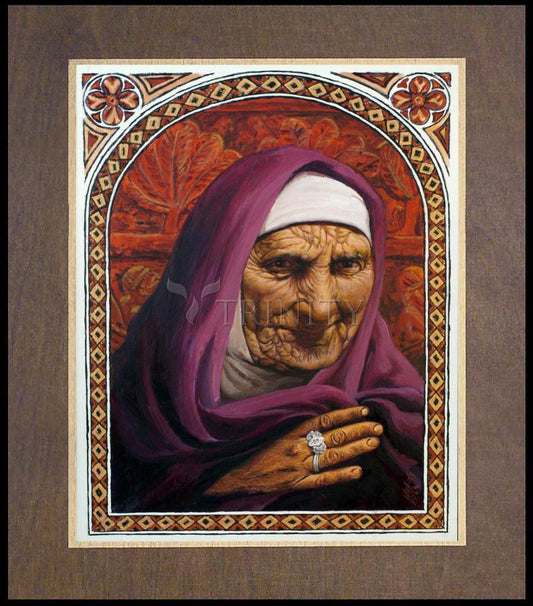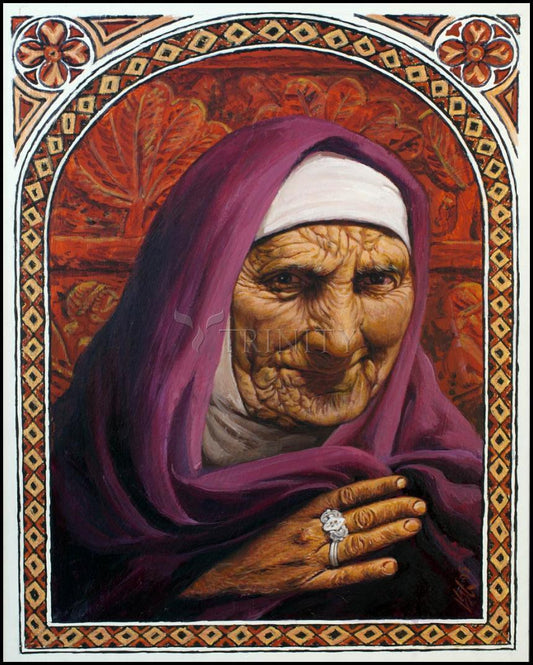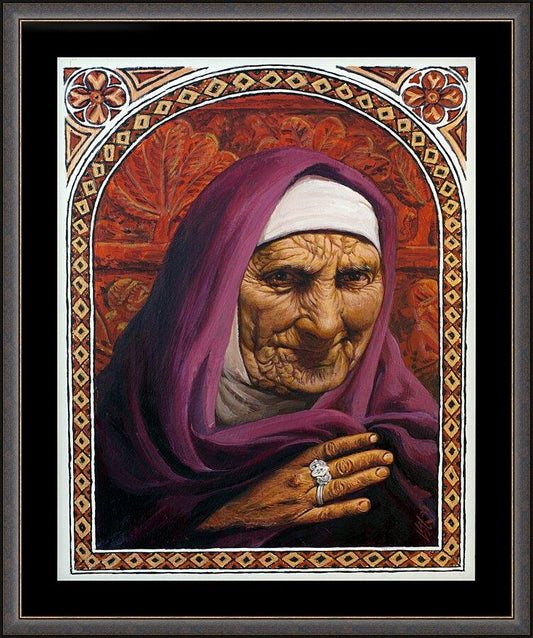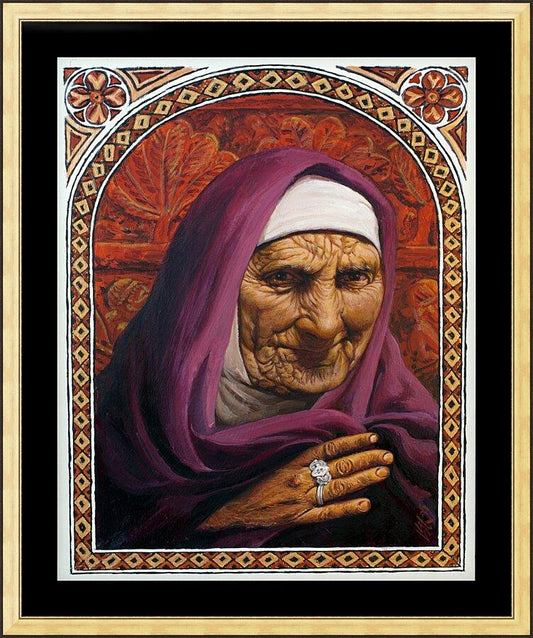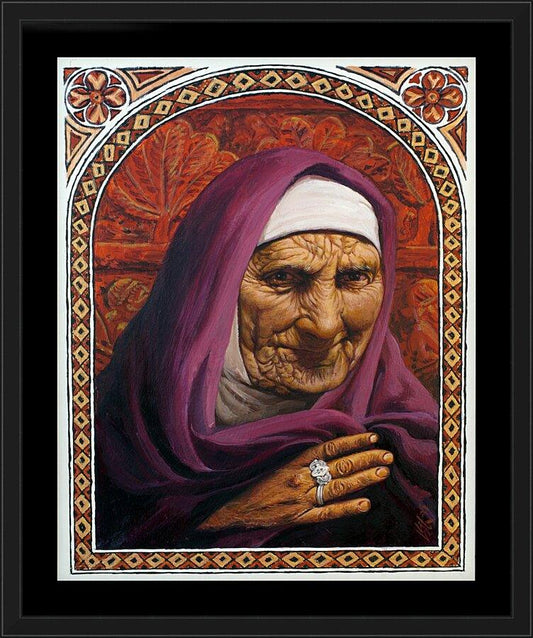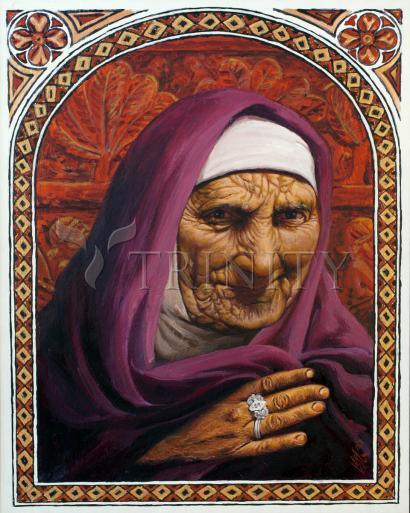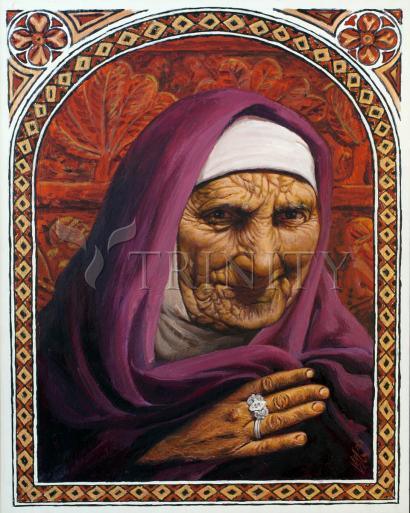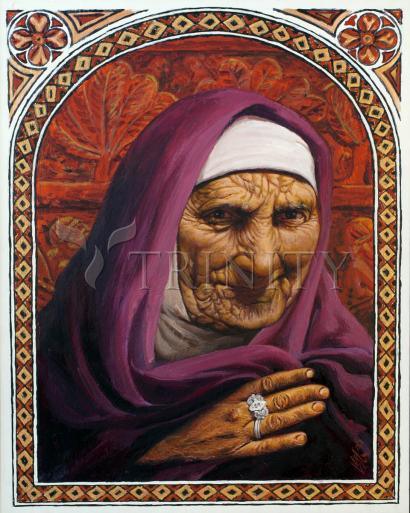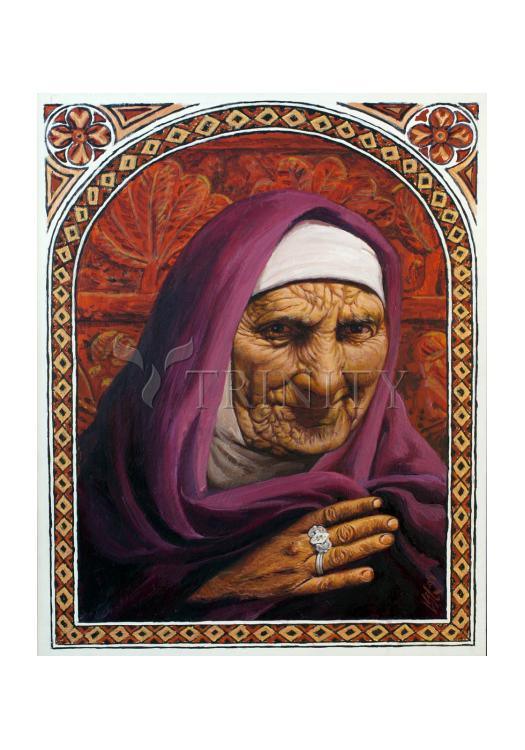Dorcas stands out in the Bible as a woman of good works and charitable deeds. While the record of her in the Christian Scripture is limited to a few verses in the ninth chapter of Acts, her name, even today, stands for the charitable use of the needle. Her example has inspired women throughout history to take upon themselves the needs of the poor.
Dorcas lived during the first century AD. She made her home in Joppa and was associated with a little band of Christians, most of whom were poor. Dorcas, herself, appeared to be a wealthy woman, for her charitable deeds were numerous.
While the Bible gives us only glimpses of her benevolent works and her witness for Christ in the book of Acts, her influence is felt even today. She is evidently a Christian, being called "a certain disciple". There was a church in Joppa that was established at an early date by Phillip the evangelist. From it's very beginning, the church in Joppa was known as a center of enthusiastic evangelism with a well-organized benevolent work. It is possible that Dorcas came to Christ in this church and from there was taught the concept of service to mankind.
Dorcas proved herself to be a real "doer" of the Word of God, not just a mere "hearer". What is significant about the account of her life is that Dorcas not only thought up ways of relieving the needy, but she also carried out her plans. She knew what she could do and she DID it! Among her charitable deeds was making clothes for widows and the needy of her church community with her own hands. She was not only willing to give money to a cause, but she was willing to invest herself in the works of kindness.
While Dorcas is noted for her charitable deeds, she is also well known for her life being miraculously restored to her. According to the Bible, Dorcas died and was brought back to life at the hands of the Apostle Peter. When she died, Dorcas left the church at Joppa grief-stricken. Leaders of the congregation called for the Apostle Peter, who was visiting a neighboring city. Peter was renowned for his supernatural power and the church doubtless hoped that he might be able to restore Dorcas to them. When Peter came to the place that she lay, he found that the widows that Dorcas had helped had laid her out and prepared an eloquent eulogy on the life and character of their greatly loved patroness by displaying some of the many coats and garments which she had made for them. There were aged widows whose hands were too feeble to sew and too poor to pay others for their work. They showed the warm garments Dorcas had made them to protect them from the cold winds. And there were younger widows whose little children had been clothed by Dorcas. They yearned for the Apostle Peter to bring her back.
The scene apparently touched Peter's emotions. He sent them all out of the room and then he kneeled down and prayed. When he was sure that God was going to grant his request, Peter spoke the word of power and authority and raised Dorcas from the dead. He then presented her alive to the congregation at Joppa.
While Dorcas was greatly loved and respected by the church at Joppa, apparently she wasn't conscious of the affect her work was having on people. She didn't strive to be a leader, but was content to stay in her own home and do all she could to serve God in her sphere of influence. Yet, because of her faithful service, she did indeed become a leader in philanthropic causes. Many women throughout history have formed "Dorcas Societies", holding humanitarian ideals and engaging in various relief activities. To women throughout the ages, Dorcas has been a fine example of benevolence.
"Excerpts from "Dorcas" by Patricia Chadwick



